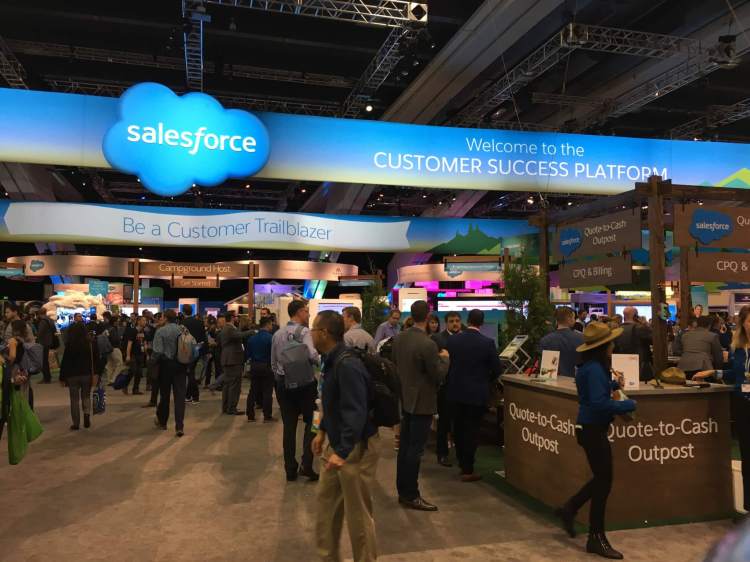Salesforce is looking to take its AppExchange to the next phase to better address the increased demand for subscription-based services within the enterprise. Today the company launched a partner program that replaces the existing independent software vendor (ISV) program with a completely new pricing model, support, and onboarding experience and an additional set of tools.
To encourage development, Salesforce has allocated $100 million to incentivizing developers, startups, and ISVs.
“The convergence of [artificial intelligence, Internet of Things], and massive datasets has created incredible new opportunities for developers to move beyond the app and build components, intelligent bots, data streams, and more,” explained Leyla Seka, Salesforce’s executive vice president for its AppExchange. “The new AppExchange Partner Program empowers the next generation of Salesforce ISVs with a single destination for everything they need to succeed — the training to create solutions on cutting-edge Salesforce technology and the programs to turn them into businesses with global reach.”
Salesforce launched the AppExchange 11 years ago, and since that time more than 3,000 apps have been added to the marketplace and installed more than 4 million times. But a lot has changed since then — not only at Salesforce, but also in the startup ecosystem. In order to adapt to this changing landscape, the partner program had to adapt.
June 5th: The AI Audit in NYC
Join us next week in NYC to engage with top executive leaders, delving into strategies for auditing AI models to ensure fairness, optimal performance, and ethical compliance across diverse organizations. Secure your attendance for this exclusive invite-only event.
Here are the changes coming to the AppExchange partner program:
- Establishing an AppExchange Trailblazer Score: This point-based system provides a metric around how closely aligned an app is with Salesforce’s values. It factors in customer success, reviews, how engaged the developer is on Trailhead, and technology adopted, like Salesforce’s Einstein AI platform, Lightning, and more.
- Lower percent net revenue (PNR): Salesforce is decreasing the percentage it takes from app subscriptions, at least for new partners. Instead of the traditional 25 percent, it will now be 15 percent for new partners. Existing partners will remain at 25 percent, and Seka said there are no plans to renegotiate existing contracts until they’re up for renewal.
- New onboarding: To make it easier for developers to get apps into the marketplace, Salesforce has streamlined the onboarding experience, launching a new AppExchange wizard and payment tools that include support for single Euro payments, automatic clearing house (ACH), and credit cards. In addition, the company has opened up API support for its Channel Order app. Lastly, there’s a partner program dashboard so developers can track their overall progress and Trailblazer score.
- New technology tools: Developers have access to Heroku and Salesforce DX, which enables group collaboration capabilities.
“This is a great moment to double down because there’s so much interest in Einstein, Lightning, and Trailhead,” Seka shared. “It exemplifies our demonstration of commitment to building the largest ecosystem in the world for the enterprise.”
Moving forward, a big focus will be on Salesforce’s $100 million platform fund that’s provided through the company’s venture arm. Though this isn’t the first such investment vehicle Salesforce has created, this one is aimed squarely at building out the ecosystem to address the needs of the enterprise.
According to Matt Garratt, a vice president for Salesforce Ventures, developers awarded funds will have to build something that’s in strategic alignment with the company and will help “deliver a much better solution to our customers.” While Garratt declined to disclose what an average deal size would be, the firm will invest in Series A, B, and C funding stages.
Salesforce isn’t going to be alone in terms of investing in startups. Garratt said that Salesforce will be working similarly to the way it did with the $50 million Lightning Fund, when the company partnered with Bessemer Venture Partners, Cloud Apps Capital Partners, Emergence Capital, Kleiner Perkins Caufield and Byers, and Lightspeed Venture Partners.
Salesforce has already allocated more than $350 million for startups, to be spread across four funds.

